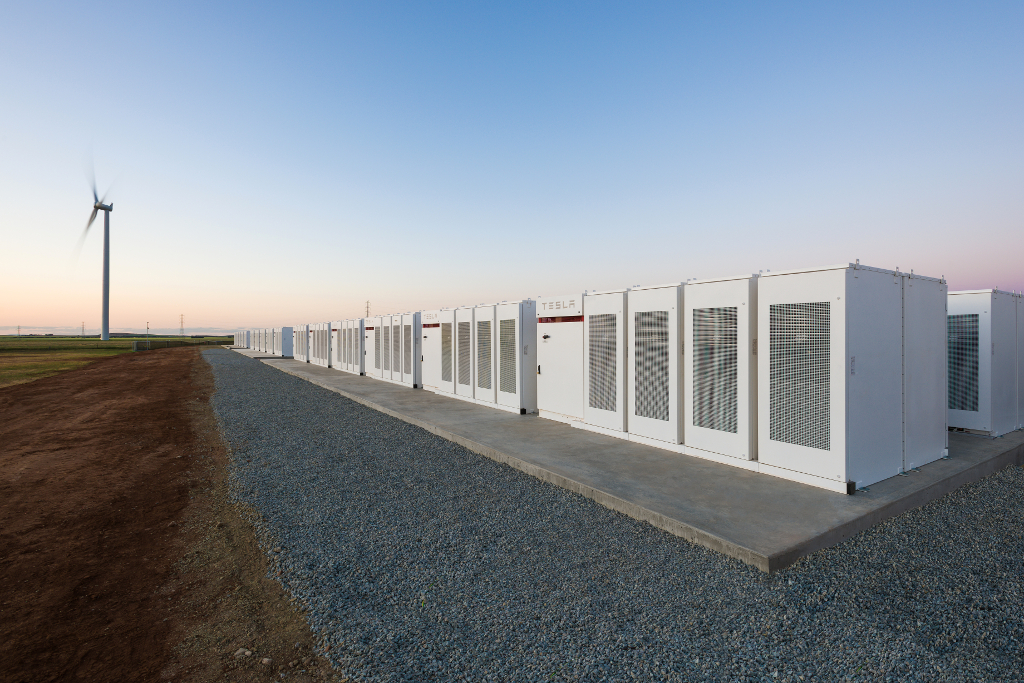
An accusation has been made that Hornsdale Power Reserve, the landmark large-scale battery energy storage system (BESS) in South Australia, did not deliver ancillary services as offered over a four-month period in 2019.
The Australian Energy Market Operator (AEMO) has said that the BESS, which went into service in 2017 as a 100MW / 129MWh project and expanded last year to 150MW / 193.5MWh, made offers to participate in the frequency control ancillary services (FCAS) market on which it didn’t deliver.
Enjoy 12 months of exclusive analysis
- Regular insight and analysis of the industry’s biggest developments
- In-depth interviews with the industry’s leading figures
- Annual digital subscription to the PV Tech Power journal
- Discounts on Solar Media’s portfolio of events, in-person and virtual
AEMO said that this also covered periods when the BESS was required to respond to frequency disturbances on the grid during the months of July to November 2019 and this undermined the market operator’s ability to maintain grid frequency within limits of the Frequency Operating Standard.
On AEMO’s request, proceedings have been instituted by the Australian Energy Regulator in the Federal Court for the alleged breach of National Electricity Rules. Enforcement action could follow, including financial penalties, as well as declarations and recovery of costs.
Tesla CEO Elon Musk famously offered via Twitter to deliver and install the grid-connected battery system within 100 days of signing a contract in 2016, following a blackout event the previous year that left millions without power. The BESS is designed to respond to imbalances in the supply and demand of electricity on the grid that cause frequency to deviate from within those limits.
Previous reports have shown that the system has largely been able to do so and in December 2018 was hailed as an “undeniable success” after its first year in operation, providing a rapid and precise response to FCAS regulation signals. Similarly, reports published in 2020 after the first year of operation at two other large-scale battery systems in Australia, Gannawarra Energy Storage System (25MW/50MWh) and Ballarat Battery Energy Storage System (30MW/30MWh), showed they had been able to meet or exceed technical and economic expectations.
However, AEMO said that it was alerted to the recent alleged failure after problems at the 750MW coal-fired Kogan Creek Power Station in Queensland caused a network disruption in October 2019.
AER chair Claire Savage said that it will be a top priority for the regulator this year to make sure FCAS market participants comply with rules and would enforce them if necessary.
Neoen ‘disappointed by decision’ but confident Hornsdale will continue playing role in stabilising grid
Neoen Australia managing director Louis de Sambucy said in a statement sent to Energy-Storage.news that the company is disappointed by the decision to bring proceedings but emphasised the role Hornsdale Power Reserve has played in providing network services and said that it will continue to do so.
Its ability to respond to grid signals much faster than thermal power plants which traditionally performed frequency regulation has successfully reduced the cost of FCAS by AU$150 million (US$109.31 million) in its first two years of operation and de Sambucy also pointed out that it played a role in maintaining grid stability after the recent explosion at Callide Power Station, another coal plant in Queensland.
Louis de Sambucy was unable to comment on the specific period in question. Here is his statement in full:
“Whilst we are disappointed by the AER decision to commence proceedings, Hornsdale Power Reserve has and will continue to deliver important services for the electricity network and we will continue to work collaboratively with the regulator.
Since Hornsdale Power Reserve began operations in 2017 it has repeatedly delivered on the high expectations of its performance and market impact, proving itself to be a critical positive contributor to maintaining the reliability and stability of the South Australian electricity network.
Independent Reports found that in its first two years of operation the big battery reduced the cost of Frequency Control Ancillary Services (FCAS) in South Australia by over AU$150m, delivering significant savings for energy consumers.
Hornsdale Power Reserve has also played a key role in supporting system security a number of times, including the SA/VIC separation event of 31 January-17 February 2020 and the recent Callide incident on 25 May 2021. On each occasion it has responded with its Fast Frequency Response capability to reduce the severity of the disturbance and support a return to normal frequency conditions.”






